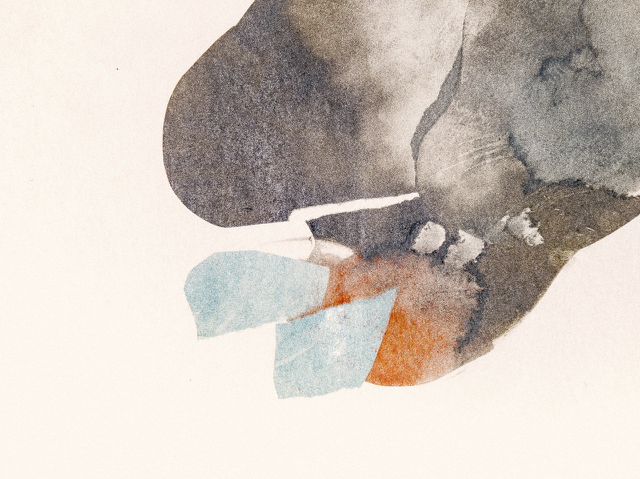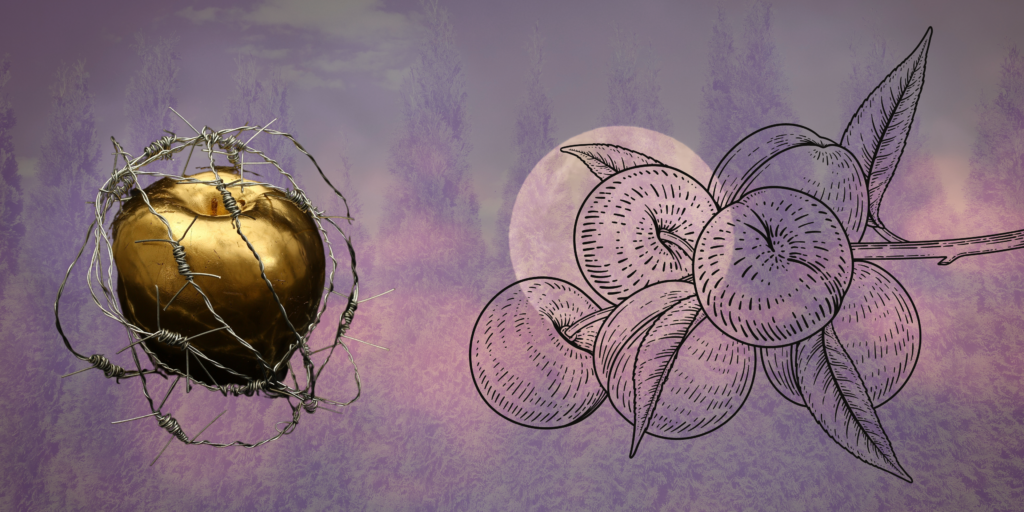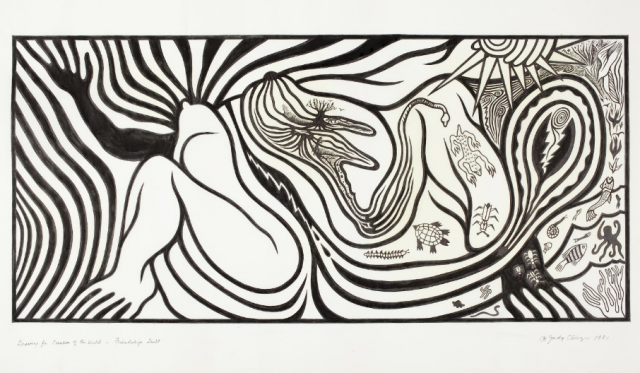夜來沉醉卸妝遲 || With night you sink drunk slow to undo/ your hair

March 13, 2019
The following ci by Li Qingzhao, with translation and note by Jenn Marie Nunes, is the fourth installment in The Pronoun folio of the Transpacific Literary Project. Find the rest of the folio here.
A selection of ci by Li Qingzhao
translated by Jenn Marie Nunes
如夢令
常記溪亭日暮
沉醉不知歸路
興盡晚回舟
誤入藕花深處
爭渡爭渡
驚起一灘鷗鷺
To the tune, Ru meng ling
You often remember the river pavilion dusk
So drunk you don’t know the way back
Tired of the evening your boat returns
Mistakenly deep into a patch of lotus
Paddlingpaddling
You startle a shoreful of herons to flight
如夢令
昨夜雨疏風驟
濃睡不消殘酒
試問捲簾人
卻道海棠依舊
知否知否後
應是綠肥紅瘦
To the tune, Ru meng ling
Last night a spattering rain, sudden wind
Deep sleep didn’t quite clear your head of
wine
You try to ask the maid rolling up the blinds
But she says: the crabapple’s just like before
Doesn’t she know?Doesn’t she know?
It should be: the green fat, red thin
武陵春
風住塵香花已盡
日晚倦梳頭
物是人非事事休
欲語淚先流
聞說雙溪春尚好
也擬泛輕舟
只恐雙溪舴艋舟
載不動許多愁
To the tune, Wuling chun
Wind settles, dust carries the scent of flowers
all used up
Day goes late and you’re too tired to comb
your hair
Everything is here but the one who matters,
so what matters
Wanting words, tears flow
You’ve heard Twin Creek’s still sweet with
spring
And think you’ll float out in a little boat
Only you’re afraid Twin Creek’s little
grasshopper boats
Cannot carry such a load of grief
訴衷情
夜來沉醉卸妝遲
梅萼插殘枝
酒醒熏破春睡
夢斷不成歸
人悄悄
月依依
翠簾垂
更挪殘蕊
更拈馀香
更得些時
To the tune, Su zhongqing
With night you sink drunk slow to undo
your hair
Bits of plum blossom trapped to branches
Then dredged out of spring sleep by stale wine
fumes
Dream snapped off so there’s no slipping
back
The house so so quiet
The moon lingers close
You draw the kingfisher-green blinds
Again, you roll the buds between your
fingers
Again, you finger their fading scent
Again, you grasp a little time
from the translator
Honored as “China’s greatest woman poet,” the only Classical Chinese poet who is both a woman and has gained the status of being “known to all”, Song Dynasty poet Li Qingzhao’s writing seems to have always been read through the lens of gender. Moreover, Li has been mythologized in Chinese historical memory not just as a poet or even as an exceptional woman poet, but as one half of a great romance through her marriage to scholar-official Zhao Mingcheng (1081-1129), who shared her love of literature. This mythologizing of Li Qingzhao’s (love) life is partly the result of autobiographical readings of her ci or “song lyrics”, even though the ci genre—evolved from popular songs to be performed in banquet halls or entertainment quarters—was largely built on the persona poem of men writing poems with women speakers. The speaker in Li’s poems has consistently been conflated with Li herself, which has meant that her ci have generally been translated into English using the first person “I,” or occasionally the third person “she,” despite no subject being marked at all in the original Chinese. As Ronald Egan points out in “The Burden of Female Talent: The Poet Li Qingzhao and Her History in China, among other things, this move denies that Li as a woman has the skill or imagination to write beyond the limits of her personal experience.
One possibility would be to translate Li’s ci, and by extension much of Classical Chinese poetry, without a subject pronoun at all. While I am interested in pursuing this mode of translation, and even putting aside the fact that the lack of a subject pronoun in Classical Chinese does not necessarily mean a particular subject is not implied, I think it is difficult to place the English speaking reader in these poems when there is no subject. Without subject pronouns in English, verbs dissipate into the gerund form or force an overwrought phrase, such as “So drunk not knowing the way back”; or “So drunk as to not know the way back.” For me, Li Qingzhao’s poems—with imagery that is both vivid and present—feel like places one is meant to inhabit rather than watch pass by. And so, instead of “I” or “she,” my translations argue for use of the second person, making “you” the subject. I believe “you” can return Li’s poetry to the place of poetry (rather than historical or autobiographical document) while still retaining the uniqueness of her voice as it is, in this genre, enmeshed with a sense of intimacy. “You” can create some distance between the speaker and the author, which, even if read as a sort of “self-talk,” instills a sense of multiplicity or disunity in the voice and locates a potential multiplicity in the speaker-poet’s subjectivity. At the same time, since “you” can also be read as direct address to an audience, or in this case “the reader,” it still draws you into a relationship with the speaker—akin to how the first person has the potential to place you “inside” the subjectivity of a poem. “You” allows Li’s ci to do more than stand as gendered production of historical “facts” while drawing contemporary readers into the intimate space of the poem.
My translations of Li Qingzhao’s poetry attempt to engage an ethical reading practice, albeit in a subtle way, exploring a queer-feminist mode of translation and questioning the gendered construction of Li and her poetry. How have the notions of “woman” and of subjectivity traveled over time, both in a Chinese and an English speaking context? What does the use of “I” or “she” in English, with their various baggage of exceptional individuality or oppressive binaries, do to Li Qingzhao’s poetry? What can “you,” as an intimate gesture toward another, even another within the self, perhaps allow us to see or feel in the poems?
Because part of my queer-feminist approach is a call for an ecology of translation, where I hope to queer the notion of the authoritative translator and the authoritative translation in order to open up space for a range of approaches to any one text, I would like to acknowledge the previous translators of Li Qingzhao’s ci whose work I have spent a good deal of time with: Ronald Egan, Eugene Eoyang, and Jiaosheng Wang; and the professors who have made space for me to explore Li’s poetry: Patricia Sieber and Meow Hui Goh.



